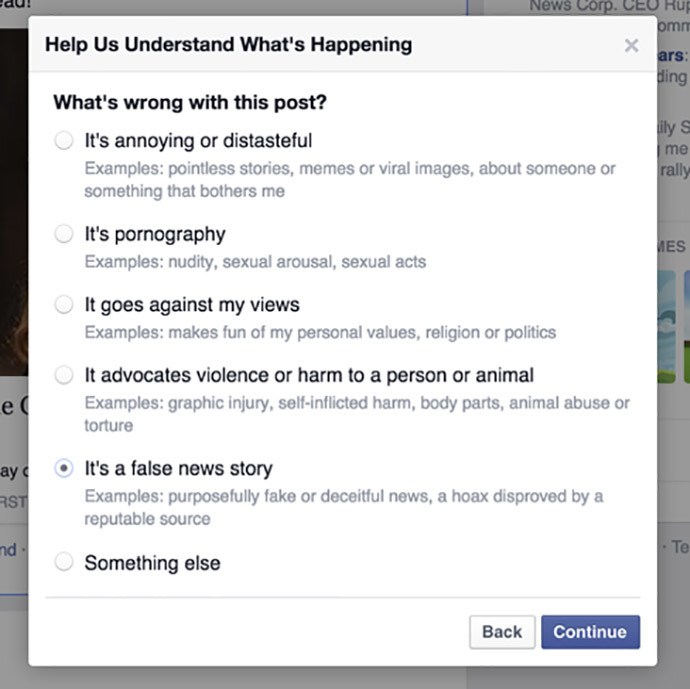
What could this mean to true freedom of expression?
By Stuart J. Hooper
21st Century Wire
If you’re reading this report from a link on Facebook, it may be the very last time you do so! Facebook allows you to share a link from any website on the Internet on their platform. If you believe a link you have seen should not be on Facebook, you can report it for removal. But who decides what is, or is not, appropriate?
It is completely understandable that something advocating for violence or depicting explicit acts probably does not belong on the social media platform Facebook. But, many people and organisations alike use the system to post news reports. You can find news on any subject imaginable floating around on Facebook; some of it is rather mainstream while other reports take alternative angles. All news is subjective. How you, the reader, interpret the news is what matters. It is up to you, not Facebook, to decide what you should trust. How can we even trust Facebook after it has been caught harvesting user data? Furthermore, what counts as a reputable source is highly subjective. Yet, the criteria of a ‘reputable source’ is exactly what Facebook will now apply to news posted on its platform.
It is now possible to ‘flag’ a news story posted on Facebook as a “false news story”. So now, “an article that many people have reported as a hoax or chose to delete will get reduced distribution in the News Feed”. If an article is flagged in this way, a warning will be posted saying “many people have reported that this story contains false information”. Many people can believe something to be false, or true for that matter, yet it does not mean that is the case.
The most disturbing aspect here is that Facebook assumes it is possible for a ‘reputable’ source to disprove a supposedly non-reputable source.
If every person reading this piece wrote down their own personal definition of ‘reputable’, we would not be able to find even two identical responses; it is a subjective opinion.
While the Western media is quick to point out ‘stated-funded’ media operations in so-called ‘rogue’ states, they are always failing to identify the BBC as a state-run, and license payer-funded institution. If state-funding is a reason to doubt a media outlet’s reputation, let us start with those closest to home.










Sign up on lukeunfiltered.com or to check out our store on thebestpoliticalshirts.com.